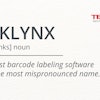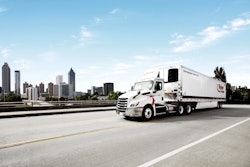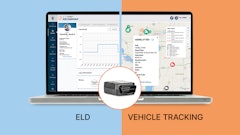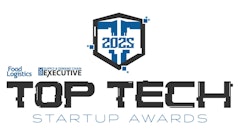
Amazon Web Services, Inc. announced that Jack in the Box, Inc. is running its infrastructure on AWS – going all-in on the world’s leading cloud – to drive flexibility and resiliency across its organization and enable the company to offer new cloud-based experiences for the more than half a billion customers who visit its restaurants every year. Jack in the Box migrated from its on-premises data centers to AWS, improving the performance and reliability of its IT infrastructure, and positioning the company to better serve customers in the digital age.
Jack in the Box chose AWS for its proven expertise in supporting the restaurant and hospitality industry, its comprehensive set of cloud services, and its scalable infrastructure, which are enabling the company to improve operational efficiency throughout the business. For example, by moving off of Oracle and Microsoft SQL Server legacy databases to Amazon Relational Database Service (RDS) and Amazon Redshift for data warehousing, Jack in the Box was able to automate time-consuming IT administration tasks such as hardware provisioning, database setup, patching, and backups, as well as cut software and hosting costs. Jack in the Box and its franchise restaurant operators now use a common operational dashboard powered by AWS to analyze sales, inventory, food safety, and labor patterns, enabling them to focus on the daily performance of the business rather than the undifferentiated heavy lifting of backing up their servers and other tasks.
Jack in the Box is also leveraging the world’s leading cloud to innovate enhanced digital ordering, dining, and customer service experiences for its guests. Going all-in on AWS means Jack in the Box can leverage AWS’s broad portfolio of machine learning (ML) services to reveal more powerful insights into its customers’ tastes and habits. This includes Contact Lens with Amazon Connect, a set of ML capabilities integrated into a cloud-based contact center service, to enable customer service to better understand customer conversation sentiment and trends. Jack in the Box will look to use these insights to more effectively train its customer service agents, replicate successful interactions, and identify product feedback that can be used to develop new menu offerings and promotions.
Moving forward, Jack in the Box is actively planning future innovations, including helping its restaurants more accurately predict customer traffic and optimize service time and food costs using Amazon SageMaker, AWS’s service for building, training, and deploying ML models. In addition, in response to increased use of its mobile app and delivery service as customers altered their routines this year, Jack in the Box also plans to use Amazon Personalize, an AWS ML service for creating individualized recommendations, to present customers with tailored suggestions on new food and beverage options and add-ons.
“As one of the nation’s first hamburger chains, we pride ourselves on being a leader in fast food innovation, offering customers creative new menu items and the ability to customize their meals. By using AWS’s full portfolio of cloud services, we can continue to innovate new customer experiences while providing valuable information to our franchisees to help them operate more efficiently,” said Drew Martin, Chief Information Officer, Jack in the Box. “AWS gives us the ability to be a more flexible, resilient, and data-driven organization, which is essential for our business to understand and adjust to the impacts of challenges such as COVID-19, flexibly scaling and contracting our resources to optimize how we operate.”
“Jack in the Box has been delighting restaurant goers for nearly 70 years. Now, with AWS’s proven infrastructure and deep portfolio of services powering their IT operations, they are able to expand their use of digital channels like online ordering and delivery apps to continue earning the loyalty of future generations,” said Greg Pearson, Vice President, Worldwide Commercial Sales at Amazon Web Services, Inc. “By going all-in on AWS, Jack in the Box can spend most of their time innovating versus having to navigate multiple platforms, giving the company and its restaurant franchise owners the ability to understand their customers better and anticipate their needs, while also providing the scale and flexibility to quickly respond to changing business operating conditions.”




















